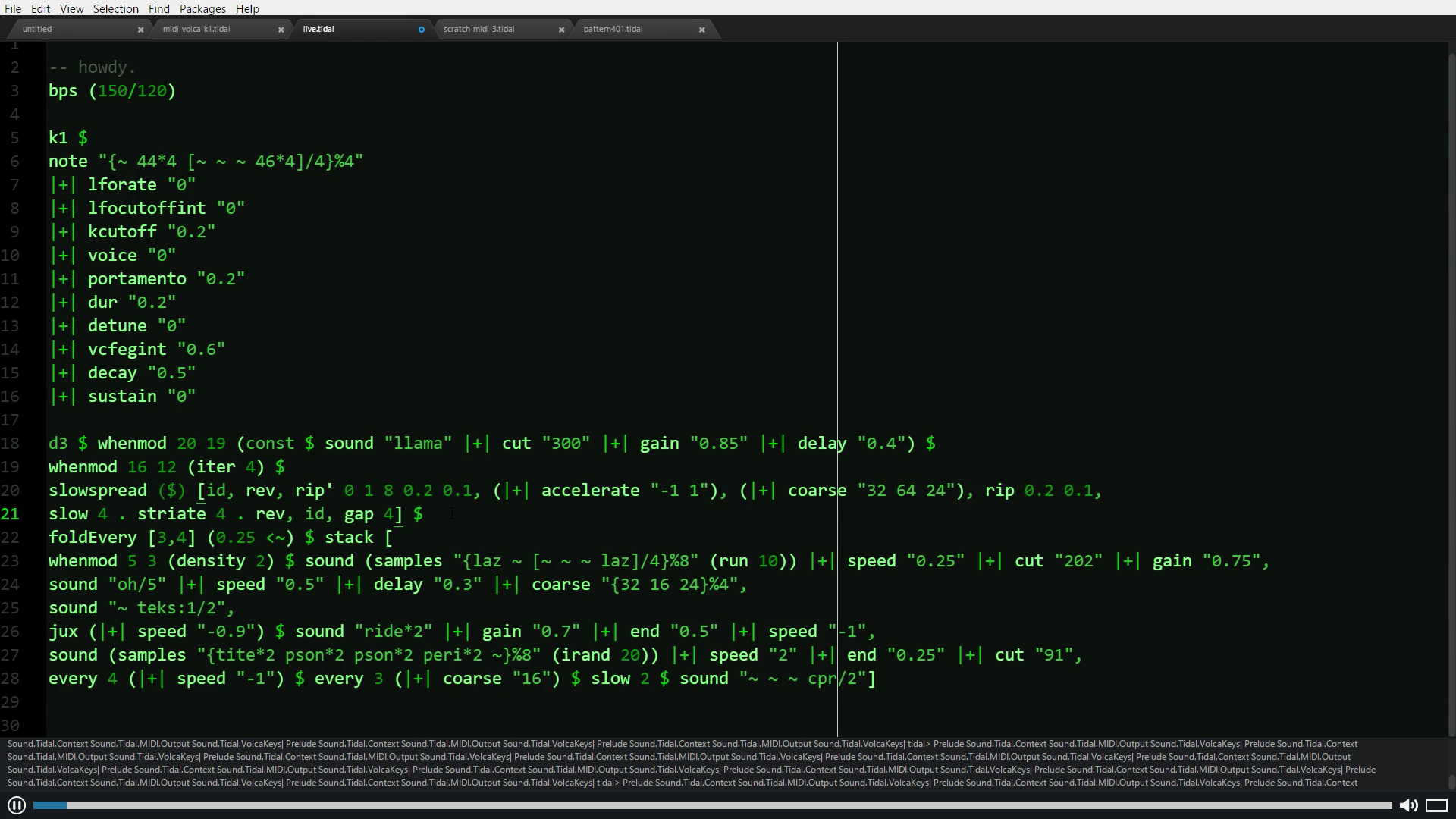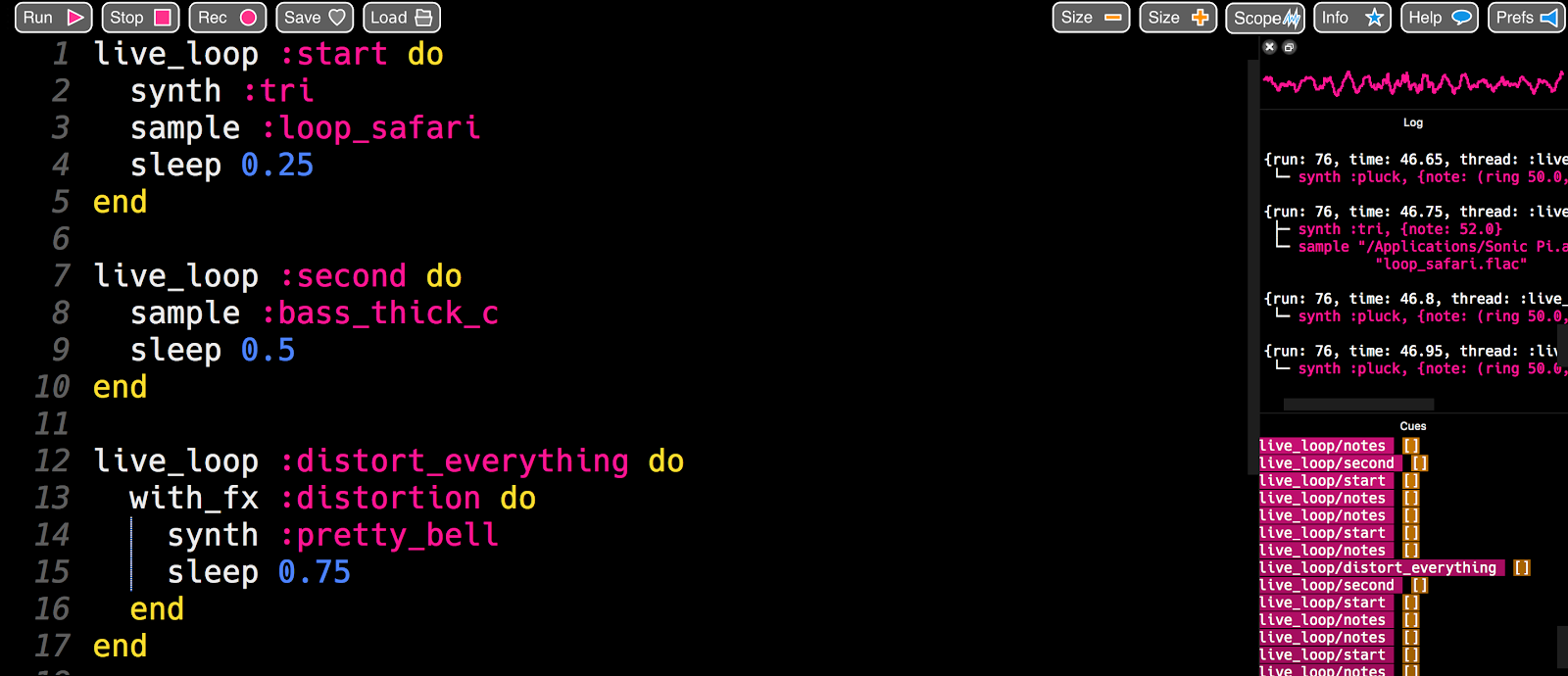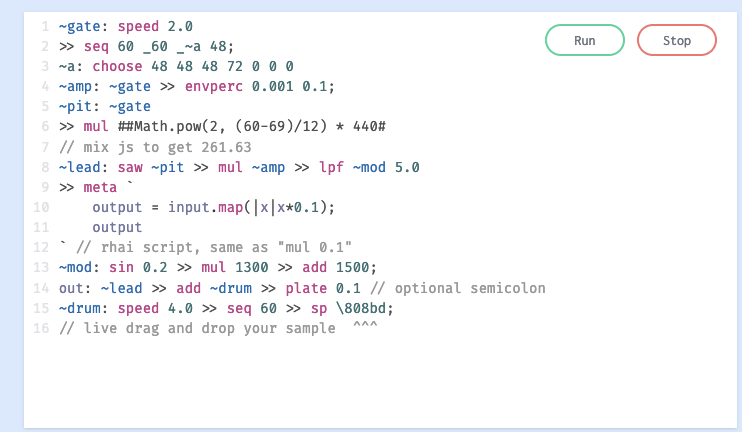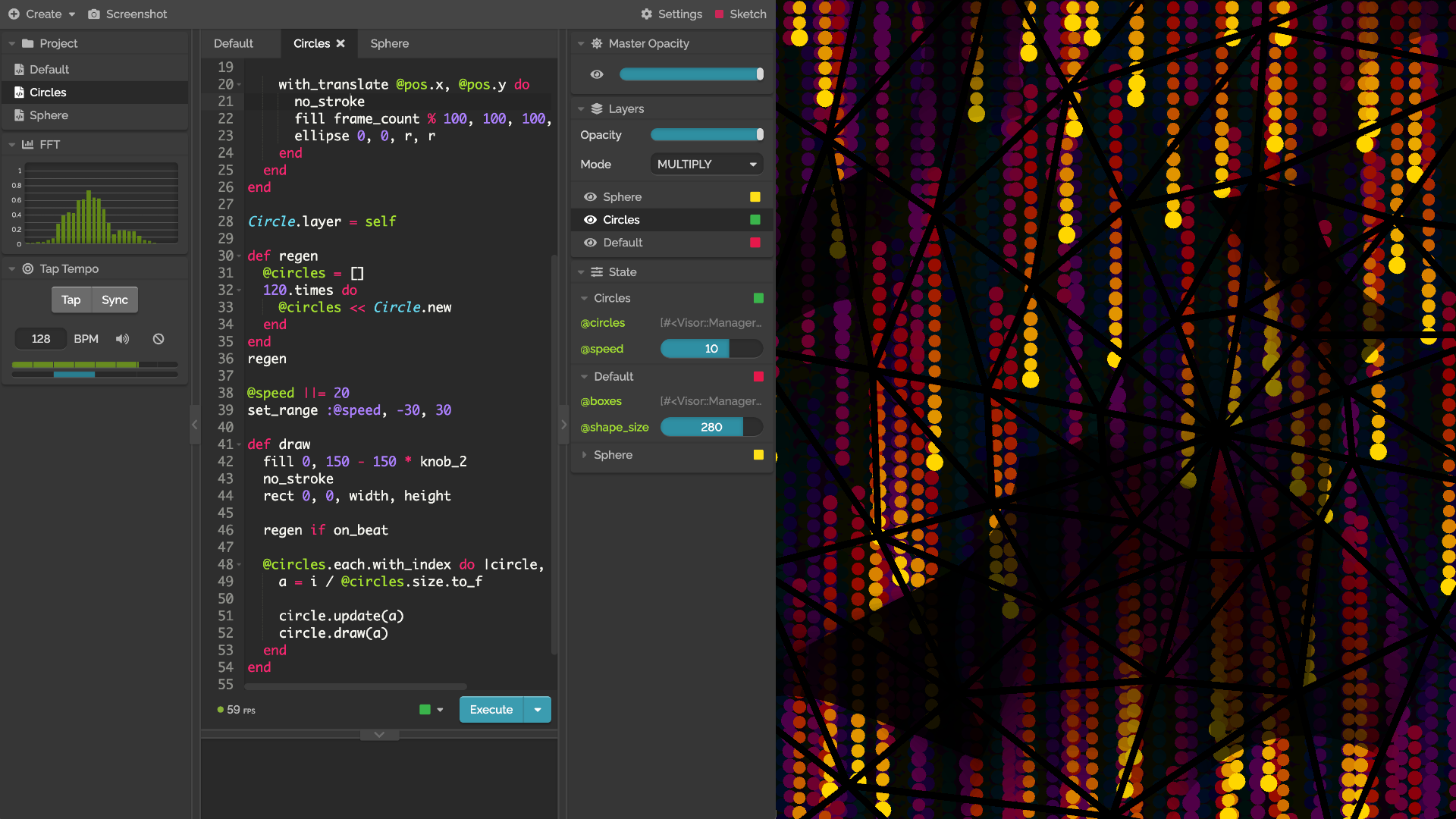If you are curious about programming, sound and live coding, you should come to Notam this autumn.
On the first Tuesday of the month in autumn 2024, C2HO (Creative Computing Hub Oslo) organizes a series of workshops on Live coding in collaboration with Notam. Each workshop will be an introduction to a live coding environment or language.
Live coding is a form of programming where the developer writes the code in real time while the audience watches. The code is usually displayed on a screen that the audience can see, while the work is being created. This is closely related to other performance-based art forms but linked to the programming language as a phenomenon.
All workshops are free, but require registration. Registration links will come later.
The program for autumn 2024 is:
October 1 – Qichao Lan: TidalCycles/Strudel
November 5 – Tejaswinee Kelkar: Sonic Pi
December 3 – Qichao Lan: Glycol
Read more about C2HO (Creative Computing Hub Oslo) here:
Qichao Lan: TidalCycles/Strudel
Time: 1 October 2024, 18:00 – 20:00
Location: Notam, Myrens verksted 3A, Oslo
Attendance at this event is free, but requires registration.
TidalCycles (also known as “Tidal”) is a live coding environment designed for musical improvisation and composition. It is a domain-specific language embedded in the Haskell programming language and is focused on the generation and manipulation of audiovisual patterns. It was originally designed for percussive and polyrhythmic music, but now uses a flexible and functional representation for musical patterns. Therefore, Tidal can be used for a wide range of musical styles, although the language’s cyclical approach to time means that it facilitates use in repetitive musical styles.
Strudel is a live coding platform for creating dynamic music in the browser. It’s free and open source and made for both beginners and experts. Strudel is a JavaScript version of TidalCycles.
Read more about TidalCycles/Strudel here:
https://tidalcycles.org/
https://strudel.cc/
About the Presenter
Qichao Lan is a full-stack entrepreneur involved in multiple startups, handling everything from creative ideation to video production, visual design, hardware PCB design, industrial design, and software engineering. He holds a PhD in Sound and Music Computing from the University of Oslo, where he developed RaveForce and Glicol.
https://www.linkedin.com/in/qichao-lan/
https://github.com/chaosprint
Bring a laptop and headphones along with you. Light refreshments will be served. Read more about the event here.

Tejaswinee Kelkar: Sonic Pi
Time: 5 November 2024, 18:00 – 20:00
Location: Notam, Myrens verksted 3A, Oslo
Attendance at this event is free, but requires registration.
Sonic Pi is a live coding environment based on the Ruby programming language, originally designed to support both computing and music education in schools, developed by Sam Aaron at the University of Cambridge Computer Laboratory in collaboration with the Raspberry Pi Foundation. Thanks to the use of the SuperCollider synthesis engine, Sonic Pi is also used for live coding and other forms of algorithmic music performance and production.
Read more about Sonic Pi here:
https://sonic-pi.net/
About the Presenter
Tejaswinee Kelkar is a researcher in music and motion, and a singer. She previously worked as a data analyst at Universal Music Norway and at the RITMO center of excellence at University of Oslo. Her research interests are melodic cognition, motion-capture and musical-cultural analysis. Her research focus is on how aspects of melodic perception are illustrated through multimodality, and linguistic prosody.
https://www.hf.uio.no/imv/english/people/aca/tenured/tejaswik/
Bring a laptop and headphones along with you. Light refreshments will be served. Read more about the event here.

Qichao Lan: Glicol
Time: 3 December 2024, 18:00 – 20:00
Location: Notam, Myrens verksted 3A, Oslo
Attendance at this event is free, but requires registration.
Glicol (acronym for “graph-oriented live coding language”) is a computer music language with both the language and sound engine written in the programming language Rust, a modern alternative to C/C++. Due to this low-level nature, Glicol can run on many different platforms such as browsers, VST plugins and Bela boards. Glicol’s synth-like syntax and powerful sound engine also make it possible to combine high-level synth or sequencer control with sample-accurate low-level sound synthesis, all in real time.
Read more about Glicol here:
https://glicol.org/
About the Presenter
Qichao Lan is a full-stack entrepreneur involved in multiple startups, handling everything from creative ideation to video production, visual design, hardware PCB design, industrial design, and software engineering. He holds a PhD in Sound and Music Computing from the University of Oslo, where he developed RaveForce and Glicol.
https://www.linkedin.com/in/qichao-lan/
https://github.com/chaosprint
Bring a laptop and headphones along with you. Light refreshments will be served. Read more about the event here.

